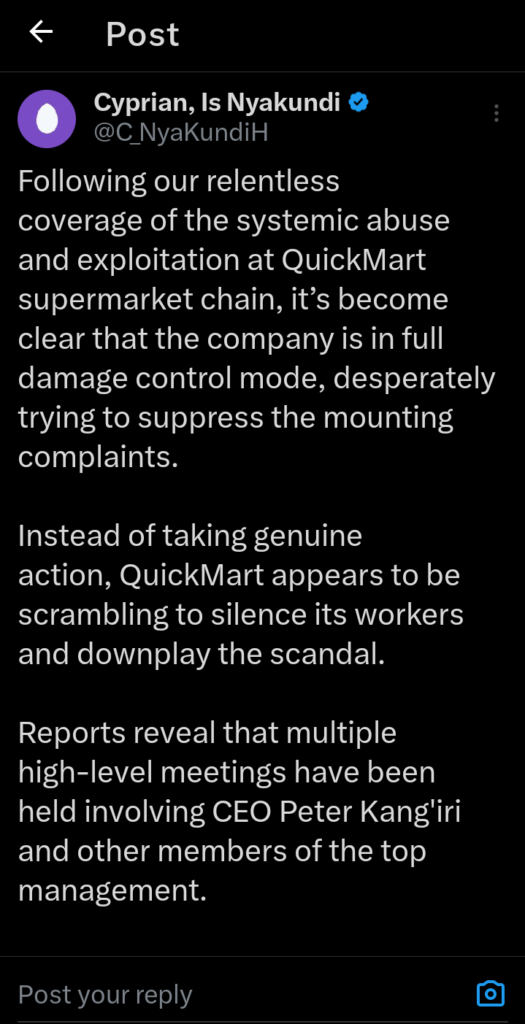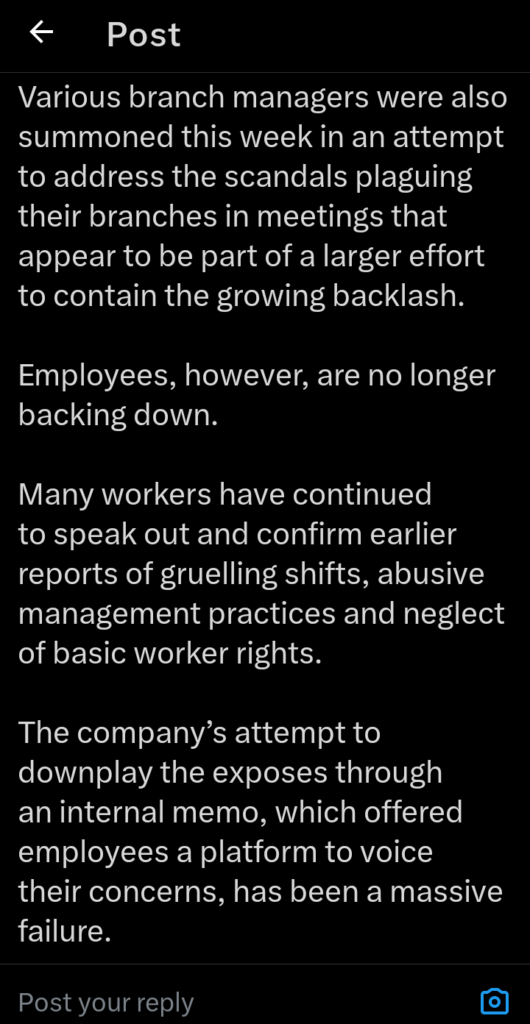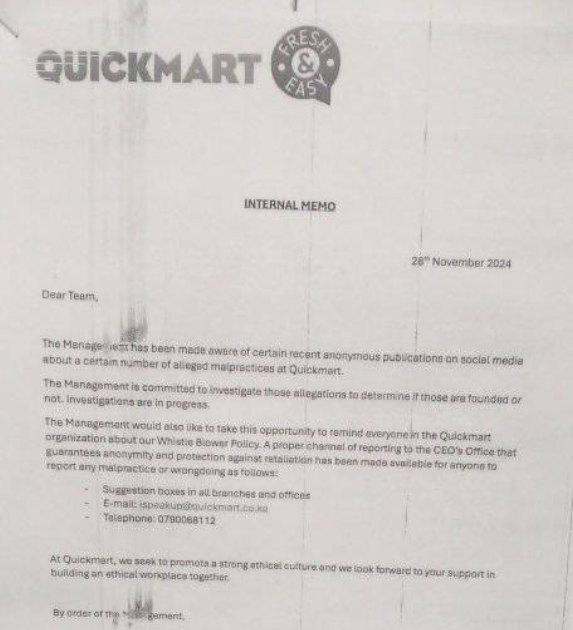QuickMart supermarket is under increasing investigation for its alleged exploitation of employees, but rather than confronting the deep-rooted issues, the company’s management seems more focused on managing the damage to its public image.
CEO Peter Kang’iri and senior leaders have reportedly held several meetings to address the growing discontent, but their actions seem more centered around controlling the narrative and suppressing criticism than making real changes.

It appears the company’s priority is to protect its reputation rather than fix the systemic problems within its operations.
Employees have come forward with reports of poor working conditions, such as long, grueling shifts and harsh treatment from supervisors.
Despite these complaints, QuickMart’s response has been nothing more than a public relations attempt.
The company issued an internal memo inviting staff to share their grievances, but many workers have dismissed this move as a shallow gesture.
Instead of addressing the heart of the issue, the company seems to be using this initiative as a way to deflect attention from the deeper concerns raised by employees.
The timing of these issues is especially damaging for QuickMart, as the company is also grappling with declining sales.
This downturn has been linked to growing dissatisfaction among both employees and customers.

QuickMart, which gained prominence after merging with Tumaini supermarkets in 2020, was once seen as a leading supermarket chain in Kenya, with over 45 branches across the country.
However, this rapid expansion has now exposed cracks in the company’s internal practices.
While it grew in size, QuickMart seems to have neglected its workforce, which is now paying the price.
Despite promoting initiatives like health and wellness programs as part of its corporate social responsibility efforts, these actions seem to have little impact when weighed against the mounting allegations of exploitation.
Critics argue that these public-facing initiatives are more about enhancing QuickMart’s image than actually improving the lives of its employees.
The company’s disconnect between its advertised values and its treatment of workers has raised questions about its sincerity and long-term viability.

The crisis QuickMart now faces could prove damaging to its brand if not handled correctly.
If management continues to focus on damage control rather than meaningful reform, the company risks losing both employee trust and customer loyalty.





















Add Comment